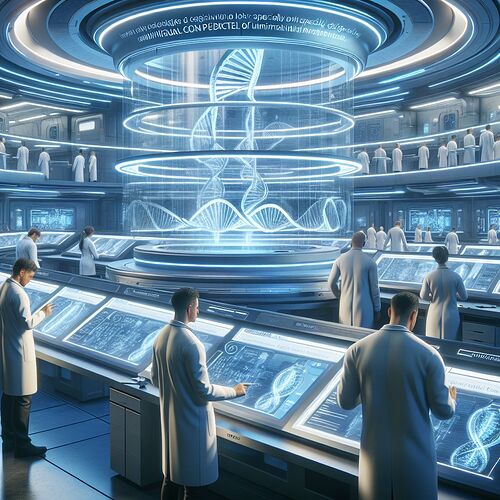Personalized medicine is a rapidly growing field that tailors medical treatment to the individual characteristics of each patient. This approach considers genetic, environmental, and lifestyle factors to provide a more precise and effective treatment plan. Here, we will explore various careers that require expertise in personalized medicine.
1. Genetic Counselor
A Genetic Counselor works with patients to assess their risk for inherited conditions and provides information about genetic testing. They play a crucial role in personalized medicine by helping patients understand their genetic makeup and the implications for their health.
Example
As a genetic counselor, you may work with a family to determine the risk of a hereditary condition, such as cystic fibrosis. You would analyze their family history, discuss genetic testing options, and provide support in making informed decisions.
2. Clinical Pharmacologist
A Clinical Pharmacologist specializes in how drugs interact with the human body. They use their expertise to develop personalized medication plans based on a patient’s genetic profile, ensuring that treatments are safe and effective.
Example
In a clinical setting, a pharmacologist might adjust the dosage of a medication for a patient with a specific genetic mutation that affects drug metabolism. This personalized approach helps to minimize side effects and optimize therapeutic outcomes.
3. Bioinformatics Specialist
A Bioinformatics Specialist uses computational tools to analyze biological data, such as genetic sequences. Their work is essential in personalized medicine, as they help to identify genetic variations that could impact health and treatment.
Example
Bioinformatics specialists might develop algorithms to analyze large datasets of genetic information, identifying patterns that can predict disease risk or response to treatment. This information is then used to create personalized treatment plans.
4. Medical Scientist
Medical Scientists conduct research to improve overall human health. In personalized medicine, they study how genetic variations influence disease and treatment responses, contributing to the development of new therapies.
Example
A medical scientist might research how specific genetic mutations affect the progression of cancer. Their findings could lead to the development of targeted therapies that are more effective for patients with those mutations.
5. Precision Medicine Physician
A Precision Medicine Physician applies personalized medicine principles in clinical practice. They use genetic and molecular information to diagnose and treat diseases, ensuring that each patient receives the most appropriate care.
Example
In practice, a precision medicine physician might use a patient’s genetic information to select a chemotherapy regimen that is most likely to be effective for their specific type of cancer, improving the chances of a successful outcome.
6. Biomedical Engineer
Biomedical Engineers design and develop medical devices and technologies that support personalized medicine. They work on innovations that can be tailored to the needs of individual patients.
Example
A biomedical engineer might develop a wearable device that monitors a patient’s vital signs and transmits the data to their healthcare provider. This real-time monitoring allows for personalized adjustments to treatment plans as needed.
Conclusion
Expertise in personalized medicine opens up numerous career opportunities in healthcare and research. Each role plays a vital part in advancing the field and improving patient outcomes through tailored medical care. By understanding the unique characteristics of each patient, professionals in personalized medicine can provide more effective and precise treatments.
Did I miss anything? Add your comments below!
